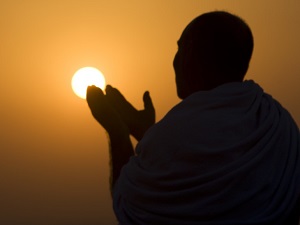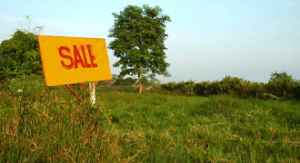“Would anything but a madman complain about uncertainty? Uncertainty and expectation are the joys of life. Security is an insipid thing.” – William Congreve
I Almost Forgot This Important Truth About Buying Land
Last week, after years of pondering the issue and several weeks of negotiation, we bought the ten-acre lot that is just south of Paradise Palms (my botanical garden in West Delray Beach).
You could say it was a foolish move. The ten acres we already have for Paradise Palms is quite expensive to maintain. Doubling the size of the place will increase that cost — and for what?
You could answer that ten acres is really too small for a botanical garden that might be open to the public one day. Twenty acres, though — that’s a nice size. It would take visitors two full hours to walk all the paths, and that’s assuming they didn’t linger at the koi pond or the Asian teahouse or any of the other features.
But the new piece of land wasn’t cheap. At $175,000 an acre, it was way too expensive to be commercially viable. I had paid about $140,000 an acre for the original ten acres. And that’s why I felt, during those weeks of negotiating, that the price was too high. Until I remembered one of the most basic rules about buying land: The cost of the raw land is not what matters. It’s the final cost of the developed land… that’s the number that counts.
The first ten acres was essentially a swamp. Landscaping it with thousands of plants and hundreds of palm trees about tripled the cost per acre. But the ten acres I just bought is already a jungle of palm trees. Our work there will be a simple matter of pruning and cutting paths and planting perhaps 100 shade palms. And the cost of that will be de minimus compared to what it cost to develop the first ten.
So although the initial cost of the first piece of land was $35,000 an acre less than the piece we just bought, the developed cost of the new acreage will be much less.
That’s something to think about whenever you buy raw land.
Repartee (noun) – Repartee (re-per-TEE or re-per-TAY) is a quick, witty reply or a conversation made up of such replies. As used by Louis Theroux: “It’s difficult to describe the weirdness of speaking to a man who appears to be perfectly in control of his faculties, who can deliver off-the-cuff repartee, and yet who is actually utterly disconnected from who he is.”
In ancient Japan, there were public farting contests. Prizes were awarded for both loudest and also longest.
“Most people see the problem of love primarily as that of being loved, rather than that of loving, of one’s capacity to love. Hence the problem to them is how to be loved, how to be lovable.” – Erich Fromme
“Bordertown” on Netflix: A brilliant/half-psychic officer at the National Bureau of Investigation in Finland changes locations and jobs when his wife barely survives brain cancer. His new job, leading SECRI, the Serious Crime Unit in the previously peaceful little town of Lappeenranta on the Russian border, turns out to be just as demanding.
The Scandinavians produce great crime dramas, and this one has an attractive film noir ambiance.
Ready for a world-class family vacation? Here, according to Travel and Leisure magazine, are the “top 50 family resorts.” (And, yes, our Rancho Santana made the list!)
A Morning Prayer for Non-Believers
I was reading about prayer. I don’t remember where. A chapter of some book. Maybe Sapiens. Virtually every religion and creed since the dawn of man, the book avowed, has practiced praying.
That may be true, but I wondered how many people actually pray. Polls of Americans project that about 55% pray every day and another 20% pray weekly. About 20% never pray.
And why do people pray?
According to Wikipedia, the big three are:
- To ask for things
- To give thanks
- To commune with the divine
I’d add two more: Prayer can remind you of what you believe and/or value. And it can remind you of how you want to live your life.
I used to pray. As a young child. But in fifth or sixth grade, I stopped believing in a god. It didn’t seem credible. So when I gave up god, I gave up praying.
Or did I?
Isn’t meditation a secular form of communing with the divine?
And each morning when I journal “three things I’m grateful for,” isn’t that a kind of praying?

And what about spontaneous victory dances? Shouting at the sky?
No, you don’t have to be religious to pray. Nor even to believe that praying can be beneficial.
I woke up last week thinking that I should add prayer to my ritual. Perhaps a morning prayer to remind me of what I value and to prompt me to behave in a manner that supports those values. I spent an hour looking at morning prayers from dozens of religions. None struck a chord. So I decided to write one myself.
My first draft was a bit messy. So I rewrote it, cutting out a few words every day. Here it is as it stands:
My life is a gift I didn’t earn and cannot claim a right to. I am amazed by and grateful for it.
It is a temporary gift that I will one day give up, but it is also a flexible one, whose dimensions can be deepened and broadened by the conscious experience of its moments.
- Some of those moments will be new. Those I will welcome.
- Some will disappoint. Those I will ignore.
- Some will be hurtful. Those I will forgive.
- Some will be threatening. Those I will respect.
- Most will be ordinary and invisible. Those I will see.
Lenitive (adjective or noun) – Something that is lenitive (LEN-ih-tiv) softens, soothes, or mitigates; alleviates pain or harshness. As used by Laurence Sterne: “There is one sweet lenitive at least for evils, which nature holds out; so I took it kindly at her hands, and fell asleep.”
There are physical ways to pray. Some Native Americans dance. Some Sufis whirl. Christians fold their hands and bow their heads. Jews sway and bow. Muslims kneel and prostrate themselves. Quakers keep silent.

